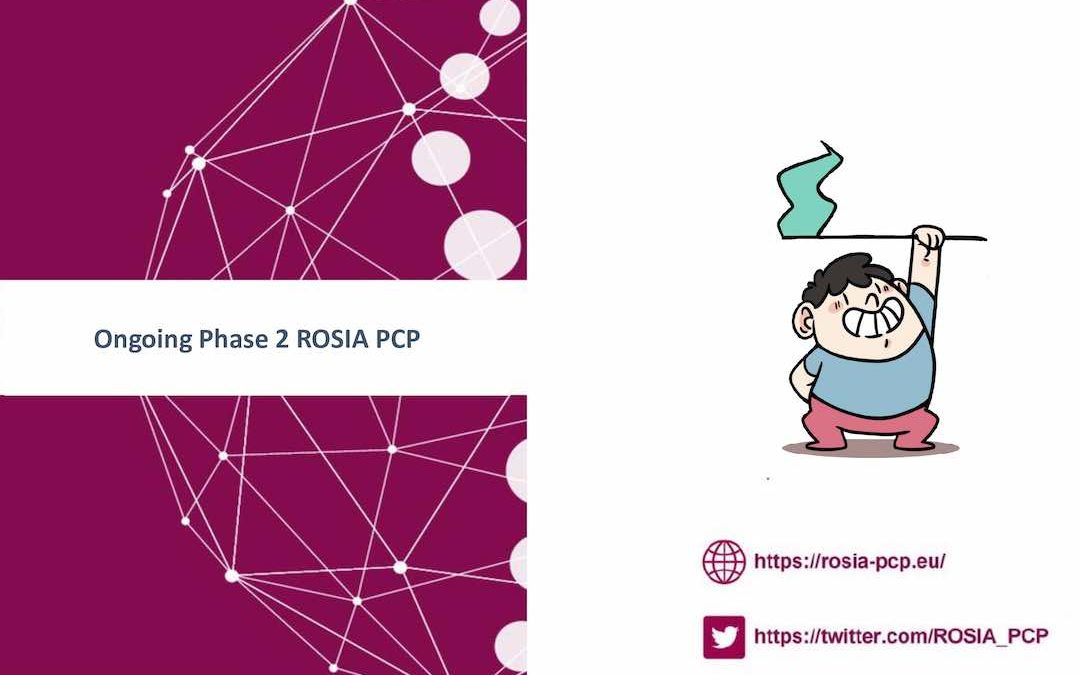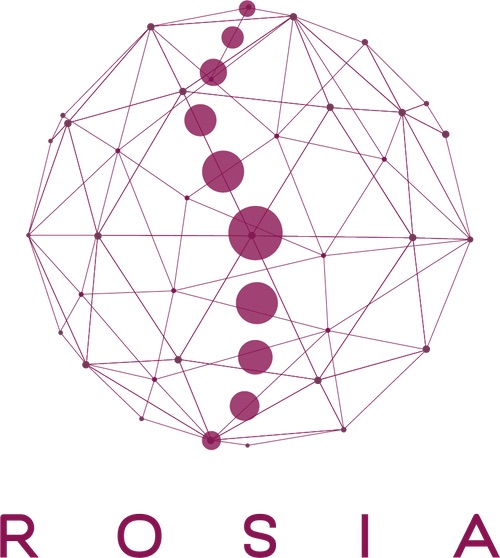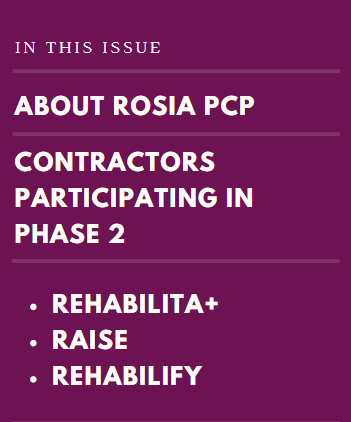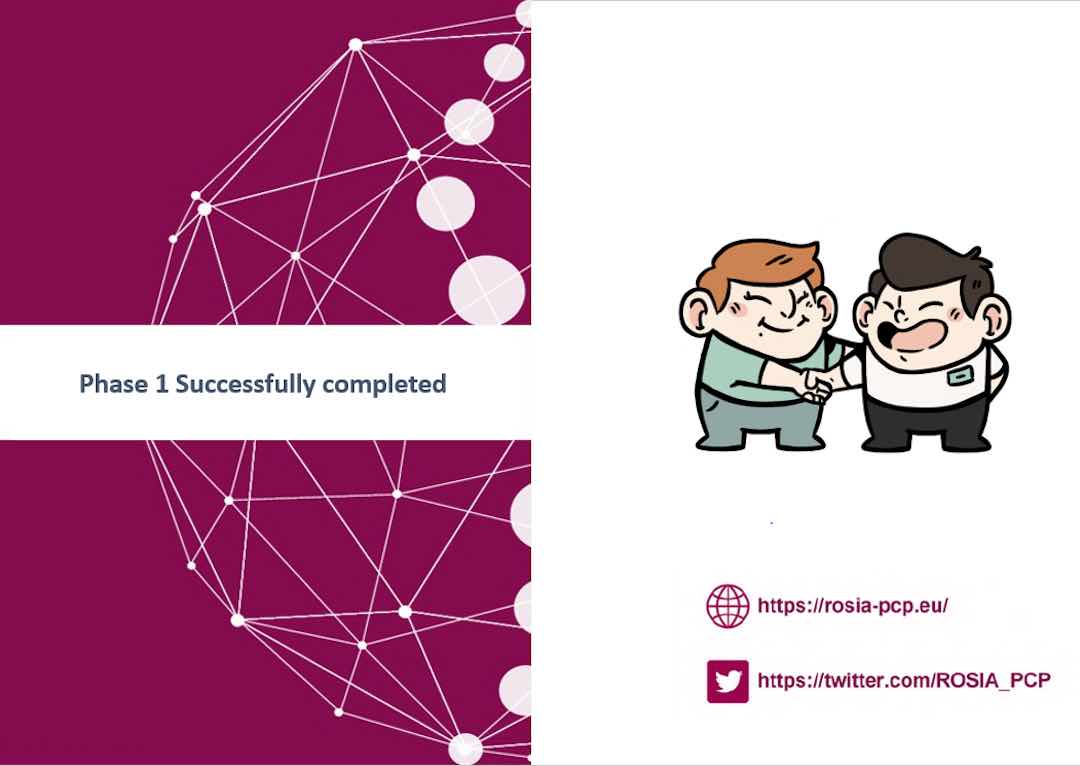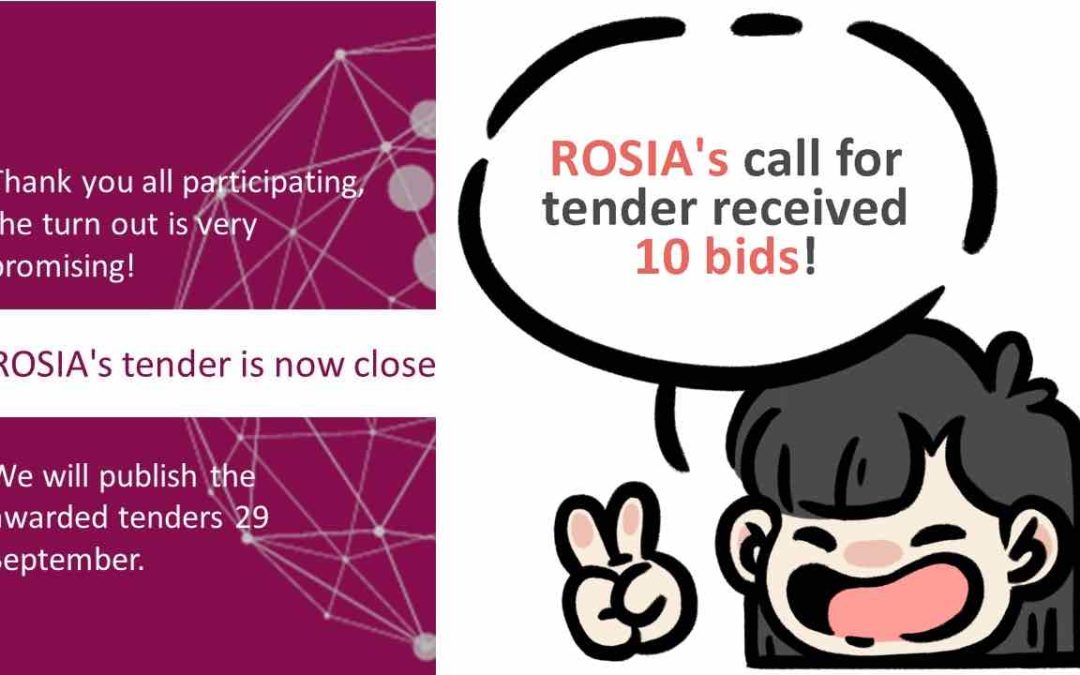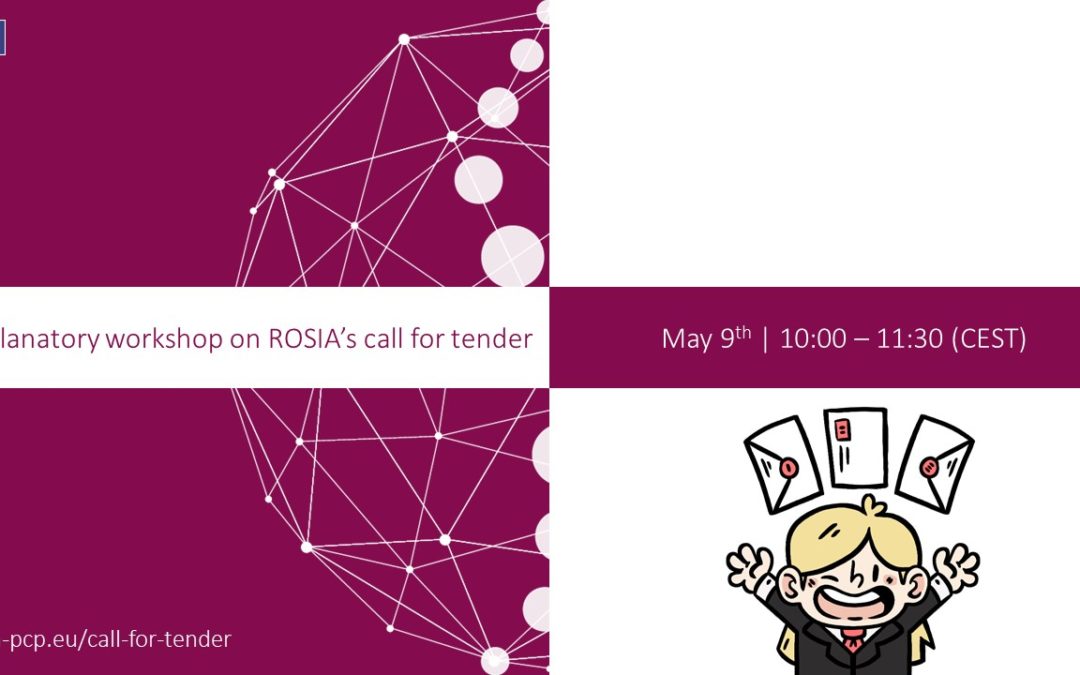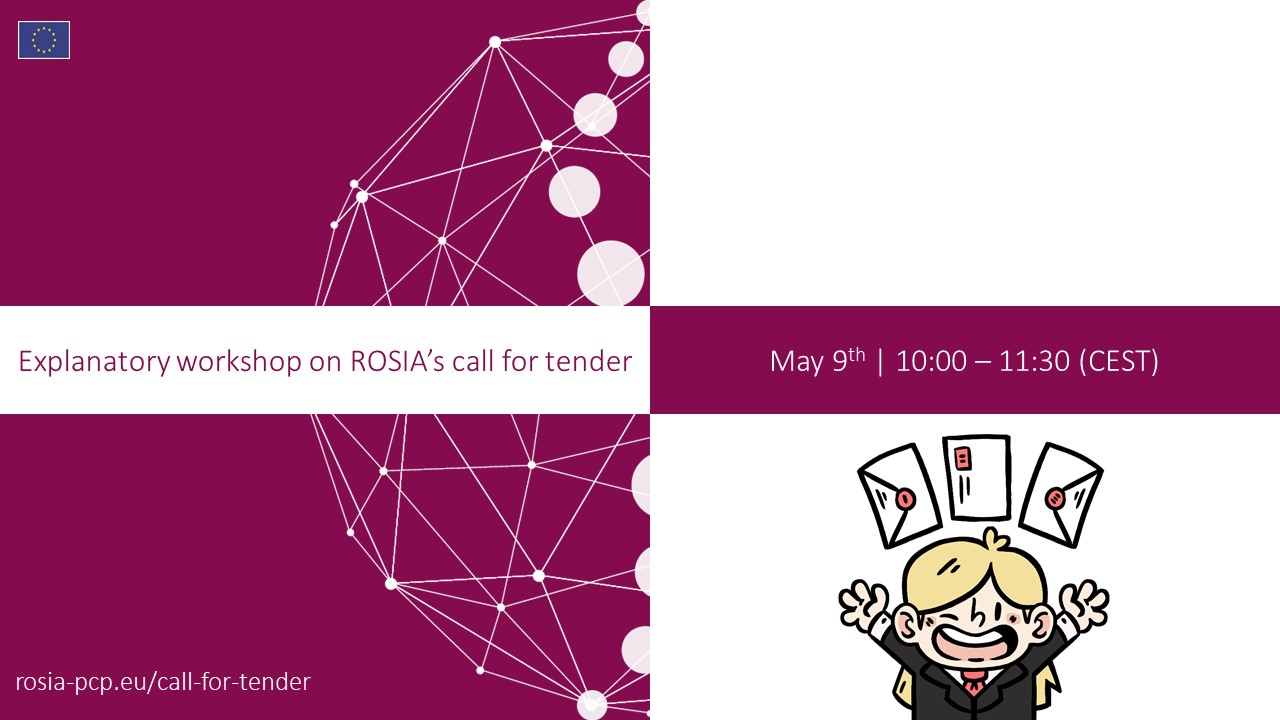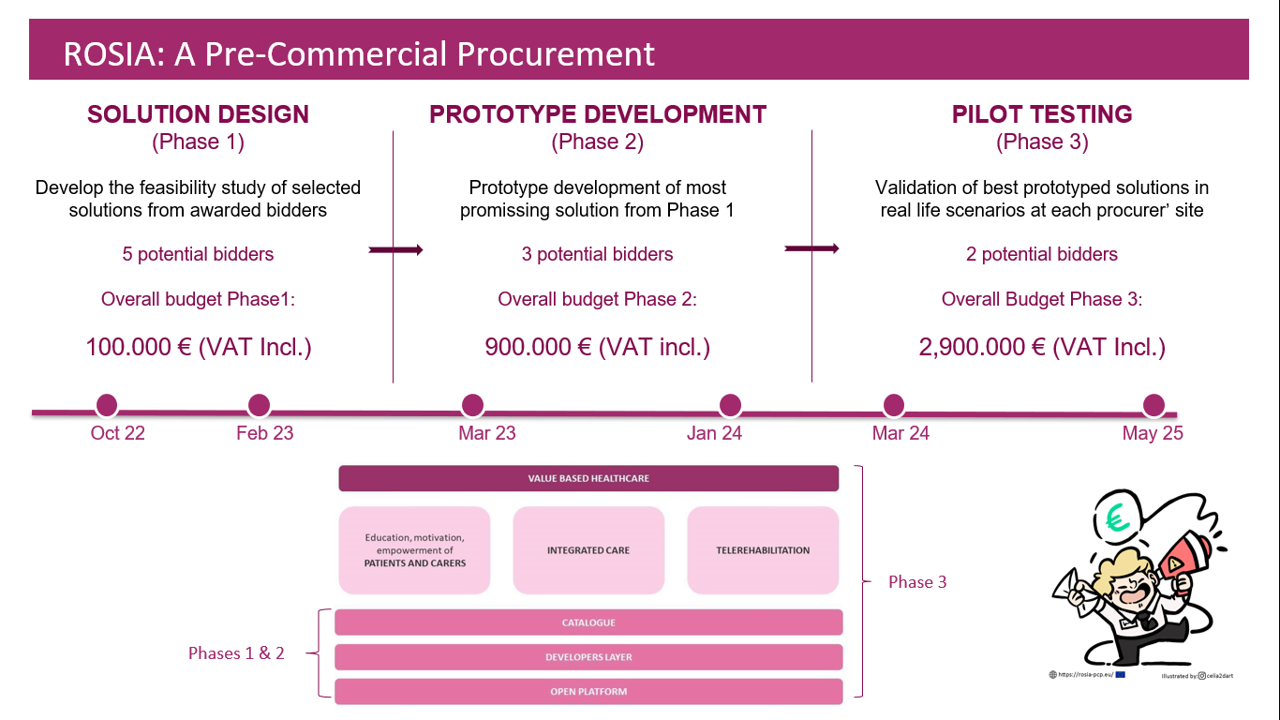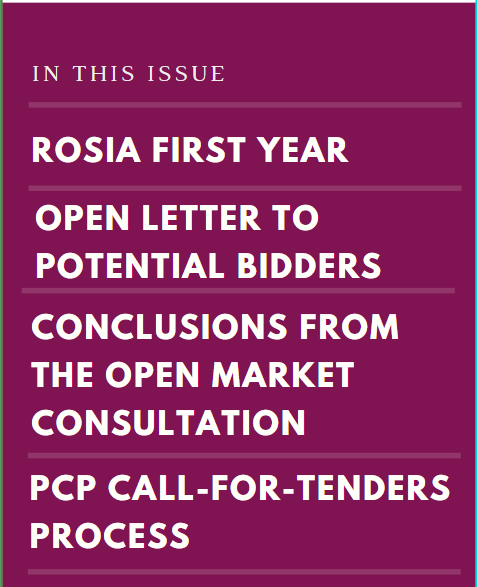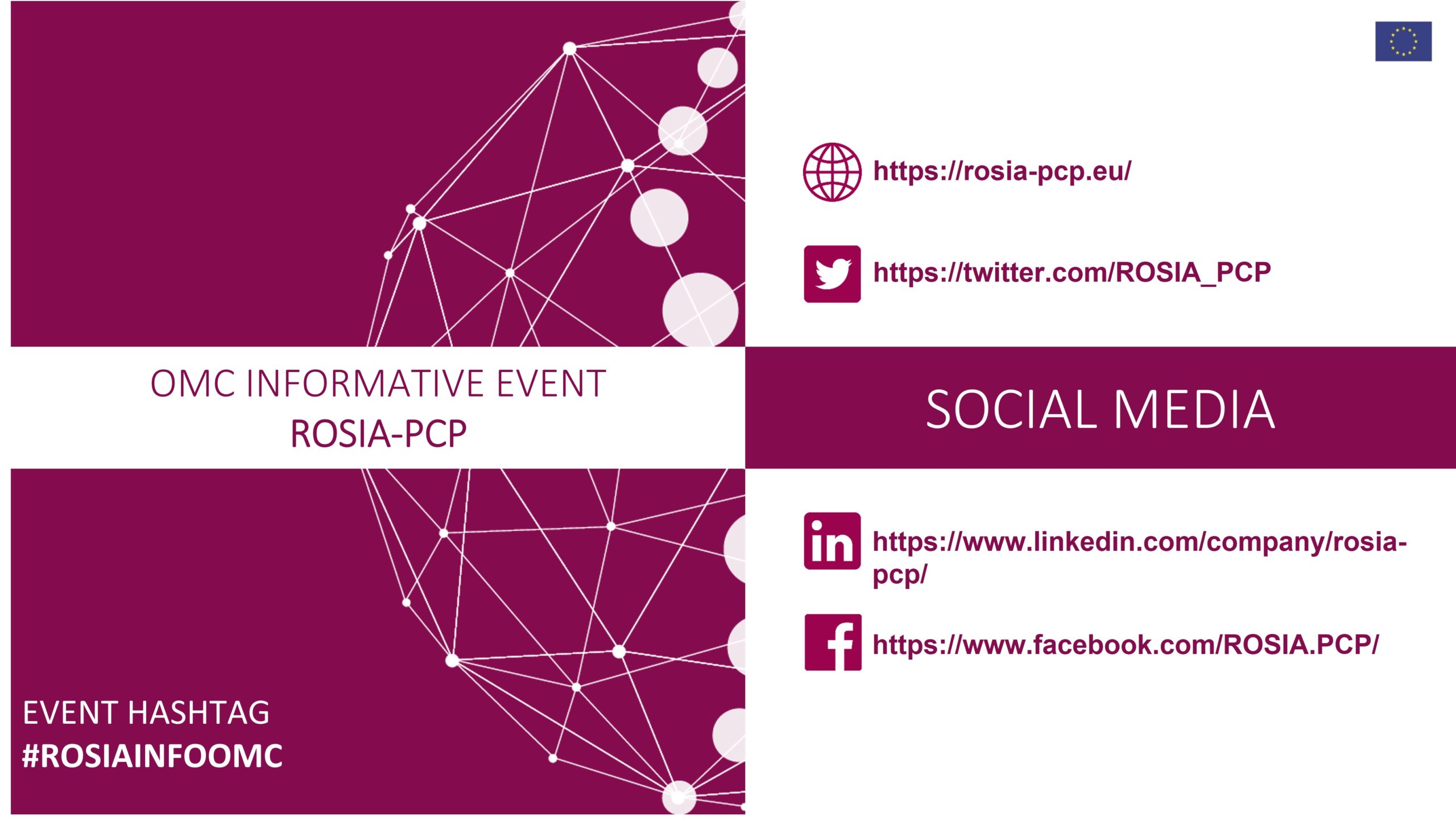The second Phase of the European Pre-Commercial Public Procurement process of the ROSIA project has started with three awarded contractors.
-
-
- Pre-commercial public procurement is a phased R&D competition in which several public administrations define a common need not covered by the market.
- ROSIA aims to unlock the telerehabilitation market through the development of an innovation ecosystem that enables the integration of public health services with patient self-care and self-management tools and community services.
- Phase 1 aimed at the detailed design of the solution, phase 2 will consist of the development of the prototype and phase 3 the validation of the complete solution. The total funding is €3.9M.
Zaragoza, 26 June 2023. ROSIA has successfully awarded the second phase of the research competition for the development of three prototypes which will be co-created with the three buyers’ organisations.
Project ROSIA PCP was launched in January 2021 and involves 12 partners across 5 countries. The project’s three public procurers are: Servicio Aragonés de Salud in Spain, Centro Hospitalar e Universitário de Coimbra in Portugal, and the National Rehabilitation Hospital in Ireland.
The project is coordinated by IACS (Instituto Aragonés de Ciencias de la Salud) and supported by eight other entities with complementary profiles: VALDE (Spain), Instituto Pedro Nunes (Portugal), The International Foundation for Integrated Care (The Netherlands), The Decision Group (The Netherlands), Instituto para la Experiencia del Paciente (Spain), PPCN.xyz Aps (Denmark) and the Municipalities Penela and Soure in Portugal.
The potential of tele-rehabilitation in improving the quality of healthcare services is well recognised and substantiated. However, barriers to its adoption remain unresolved. ROSIA aims to develop solutions to overcome these barriers.
The results obtained and the lessons learned during the ROSIA project execution will help the deployment of a telerehabilitation solutions platform, easily integrated into any health service in Europe. The applications and devices of the ROSIA Catalogue will be connected to this platform, allowing the integration of community and supervised self-care services into the care plan of each patient. The ROSIA model of integrated value-based care can also open the door to rethinking new business models and incentives for providers, improve equity in access to rehabilitation resources and contribute to improving the sustainability of these services.
The awarded contractors are:
PROHAB is the proposal of a Spanish consortium led by the Research Center Fundació EURECAT in cooperation with the SME Doole Health and the Research Institute Germans Trias i Pujol. The PROHAB solution offers a dual-system-based approach. On one side, a patient management center to all the involved professionals, following an integrated-care approach and incorporating a system to support decision-making. On the other hand, a patient with rehabilitation needs will benefit from an application that promotes self-management, behavioral change, and better follow-up. PROHAB will be ready for integration with third-party solutions and devices thanks to an open portal that enables and supports a unique access point for prescription of remote rehabilitation solutions.
RAISE will be developed by an international consortium led by the Greek Research Institute ETHNIKO and including the Spanish partners Televés, a large company, and the Research Institute Instituto de Biomecánica de Valencia, the Greek University Panepistimio Ioanninon and Vidavo, a SME, and the Portuguese Research institute INESCTEC.RAISE initiates an innovative set of tools for an integrated patient tele-rehabilitation pathway, whose main pillars are: an open platform available to patients, their informal caregivers and healthcare professionals, integrating the design of the Shared Care Plan (SCP), prescription recommendation, and social collaboration for the tele-rehabilitation period; a catalogue of devices, services and tools empowering and educating patients towards self- management; and a developers’ layer on which the solutions will be built.
REHABILITA+ will be developed by the Spanish large company GMV. Rehabilita+ will be an Open Platform to provide rehabilitation services to the healthcare providers under proper regulatory and standards compliance frameworks. The openness of the platform will enable solutions providers to faster develop high-quality solutions and populate a catalogue with apps and solutions for telerehabilitation. Solution providers will be able to easily focus on adding actual value to their apps or platforms built on top of Rehabilita+ and speeding up the creation of new solutions with high impact in telerehabilitation.
The second phase of the competition will last ten months, with a maximum budget for the second tender of €300,000 VAT included per contractor to develop the prototype of their solution. During this period, a team made up of representatives of the three purchasers will closely follow the evolution, co-creating the solution with the contractors for the alignment of their proposals with the shared needs of the purchasers.
To access the next phase, these contractors will have to go through a new evaluation of their results, in which only two of the contractors will be selected and will have a budget of €1,450,000 (including 21% VAT) each, to be carried out between March-2024 and May-2025.
